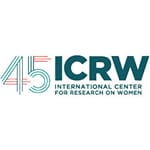Supporting Girls in Burkina Faso to Take Control of Their Reproductive Futures
HIGHLIGHTS
- Unintended pregnancies can severely alter the life course of adolescent girls and the factors explaining non-use of contraceptives among girls are multi-faceted.
- We partnered with Pathfinder International, the International Center for Research on Women (ICRW), and Camber Collective to design a board game, health passport, and facility-based solutions to put teenage girls in the role of family planning advocates within their peer groups.
- Results from a cluster randomized trial highlighted the solutions’ impact on contraceptive attitudes and beliefs and suggested that solutions may have contributed to a significant increase in attendance to health facilities.
The Challenge
In Burkina Faso, almost half of the population is under the age of 15. Many of these young people will become sexually active in their teens, and one in four young women will have a child before her 18th birthday. Many young women, particularly those who are unmarried, do not want to get pregnant, yet only 10% of girls age 15-19 were using contraceptives in 2010 — a gap contributing to the 609,000 unintended pregnancies reported in 2019. There is an opportunity to address the unmet need for contraceptives during the years when young women are making key decisions regarding their sexual and reproductive health, and when an unintended pregnancy dramatically alters a girl’s life course.
Our Approach
To understand the drivers of contraceptive non-use among adolescents, with the support of in-country and global partners, we conducted 96 interviews, observations, and focus groups including adolescent girls and boys, older male partners, parents, and health providers. Among other insights, we found that many adolescent girls don’t think about the consequences of sex, underestimate the risk of pregnancy, or misuse the “calendar days” or cycle-tracking method. Even if a girl has considered getting a contraceptive, she may be afraid someone from her community would see her at the health facility. These insights informed the design of a solution set centered around a participatory board game (La Chance) led by trained community-based facilitators. The game corrected misconceptions and increased pregnancy-risk perception through simulated decision-making. Other solutions included:
- A health passport that eased girls’ access to health facilities and prompted her to bring additional friends with her.
- Posters in health facilities that normalized consultations for adolescent girls.
- Name tags that identified youth-friendly health care providers.
Read more about these solutions here.
Results
We found statistically significant differences in contraceptive attitudes and beliefs at endline comparing intervention and control-school girls, and a huge uptick in girls reporting they had visited a health facility for SRH information or services, from only 6.2% of intervention-school girls at baseline to 32.1% at endline. In addition, a large percentage of girls (45.1%) intended to go to a facility but had not yet because of other obligations or due to COVID-19 pandemic restrictions. Overall, girls reported that they enjoyed playing the game, asking questions, and learning through gameplay and facilitated dialogue, and had positive experiences at the (re)solve health facilities. The solution set was also found to be highly acceptable among other key stakeholders including health facility staff, game facilitators, and ministers.
Takeaway
The challenge of adolescent unintended pregnancies in West Africa is well-known and yet few rigorous evaluations of promising approaches have been conducted. In light of the importance of this problem, we are encouraged by the shift this intervention appeared to have had in boosting girls’ confidence, decreasing negative contraceptive attitudes and beliefs, and getting girls to visit or consider visiting a health facility. Solutions that engage adolescent girls in being active decision-makers in their reproductive lives are critical to ensure girls can avoid unintended pregnancies and pursue their life goals. We believe that learnings from the design, implementation, and evaluation of these behavioral solutions make a humble but important contribution to Burkina Faso’s efforts to address adolescent health and wellbeing and hold promise for adaptation to other contexts.
Interested in our work applying behavioral science to global health? Email gh@ideas42.org or tweet at @ideas42 to join the conversation.
Partners













